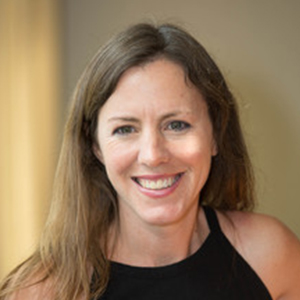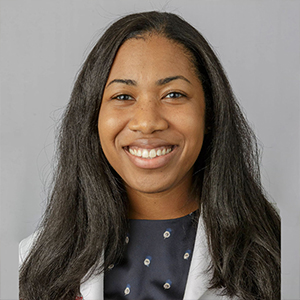Summary
This webinar will provide an overview and introduction to a range of key theories, models, and frameworks that are commonly used in the field of implementation science, including determinant frameworks, process and evaluation models, and emerging theories in the field. Additionally, speakers will provide examples to highlight how implementation science theories, models, and frameworks have been applied in the field and in our own research, including in the context of implementation efforts to promote health equity.
Speaker
 Rachel Shelton, ScD, MPH is a social and behavioral scientist with training in cancer and social epidemiology, and expertise in implementation science, sustainability, health equity, and community-based participatory research. She is an Associate Professor of Sociomedical Sciences at Columbia University’s Mailman School of Public Health, where she is Co-Director of the Community Engagement Core Resource and the Director of an Implementation Science Initiative through the Irving Institute for Clinical and Translational Research (CTSA). Dr. Shelton developed one of the first courses offered in implementation science and has been an invited speaker and mentor for implementation science programs and trainings globally for the past ten years, including NIH’s TIDIRC and TIDIRH, and the Institute for Implementation Science Scholars. Dr. Shelton has 15 years of experience conducting and leading mixed-methods research focused on advancing the science of implementation and sustainability of evidence-based interventions in community and clinical settings to address health inequities, particularly in the context of cancer prevention/control. Dr. Shelton has led work nationally on conceptualizing and measuring sustainability and health equity in the field of implementation science. Her expertise includes a focus on community engagement, sustainability, and capacity-building in relation to community health worker and lay health advisor programs nationally; her research program is funded by NIA, NCI, NIMHD and American Cancer Society.
Rachel Shelton, ScD, MPH is a social and behavioral scientist with training in cancer and social epidemiology, and expertise in implementation science, sustainability, health equity, and community-based participatory research. She is an Associate Professor of Sociomedical Sciences at Columbia University’s Mailman School of Public Health, where she is Co-Director of the Community Engagement Core Resource and the Director of an Implementation Science Initiative through the Irving Institute for Clinical and Translational Research (CTSA). Dr. Shelton developed one of the first courses offered in implementation science and has been an invited speaker and mentor for implementation science programs and trainings globally for the past ten years, including NIH’s TIDIRC and TIDIRH, and the Institute for Implementation Science Scholars. Dr. Shelton has 15 years of experience conducting and leading mixed-methods research focused on advancing the science of implementation and sustainability of evidence-based interventions in community and clinical settings to address health inequities, particularly in the context of cancer prevention/control. Dr. Shelton has led work nationally on conceptualizing and measuring sustainability and health equity in the field of implementation science. Her expertise includes a focus on community engagement, sustainability, and capacity-building in relation to community health worker and lay health advisor programs nationally; her research program is funded by NIA, NCI, NIMHD and American Cancer Society.
 Nathalie Moise, MD, MS is an internist and Florence Irving Associate Professor of Medicine at Columbia University Irving Medical Center. She is the Director of the Center for Behavioral Cardiovascular Health’s Im_Sci Lab, an implementation science lab dedicated to testing scalable mechanistically-driven digital behavioral health interventions that impact cardiovascular disease and mental health disparities. She has conducted health services research for more than 10 years and is PI/MPI of several federally funded implementation science R01s (NHLBI, AHRQ, NCI, PCORI) using hybrid effectiveness-implementation designs to test behavioral activation, patient-preference and shared decision-making digital health interventions to support implementation and sustainability of evidence based practices (as well as de-implementation when appropriate) in primary care and cardiology settings. She is the Chair of the Columbia University Physician and Surgeon’s Lead Committee at the medical school tasked with mentoring medical students in integrating implementation science and public health into the medical school curriculum, faculty for the NHLBI/UCSF Research in Implementation Science for Equity (RISE) program and co-leads the Columbia’s CTSA Implementation Science Working group, which fosters training in implementation science for junior faculty and trainees at Columbia.
Nathalie Moise, MD, MS is an internist and Florence Irving Associate Professor of Medicine at Columbia University Irving Medical Center. She is the Director of the Center for Behavioral Cardiovascular Health’s Im_Sci Lab, an implementation science lab dedicated to testing scalable mechanistically-driven digital behavioral health interventions that impact cardiovascular disease and mental health disparities. She has conducted health services research for more than 10 years and is PI/MPI of several federally funded implementation science R01s (NHLBI, AHRQ, NCI, PCORI) using hybrid effectiveness-implementation designs to test behavioral activation, patient-preference and shared decision-making digital health interventions to support implementation and sustainability of evidence based practices (as well as de-implementation when appropriate) in primary care and cardiology settings. She is the Chair of the Columbia University Physician and Surgeon’s Lead Committee at the medical school tasked with mentoring medical students in integrating implementation science and public health into the medical school curriculum, faculty for the NHLBI/UCSF Research in Implementation Science for Equity (RISE) program and co-leads the Columbia’s CTSA Implementation Science Working group, which fosters training in implementation science for junior faculty and trainees at Columbia.
About the ISD Webinar Series
The Investigator Skills Development (ISD) Webinar Series is presented by the Investigator Skills Development Unit (ISDU) of the UCSF Research Coordinating Center to Reduce Disparities in Multiple Chronic Diseases (RCC-RD-MCD).
Co-Sponsored by CAPS Town Hall and the CAPS Implementation Science and Health Systems (ISHS) Core
ISDU Director: Mandana Khalili, MD, MAS, Professor of Medicine, UCSF, Chief of Clinical Hepatology, San Francisco General Hospital
ISDU Co-Director: Edwin Charlebois, PhD, Professor of Medicine, Division of Prevention Science, UCSF